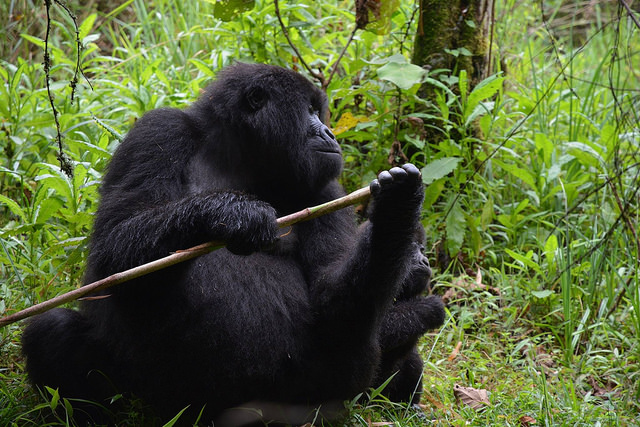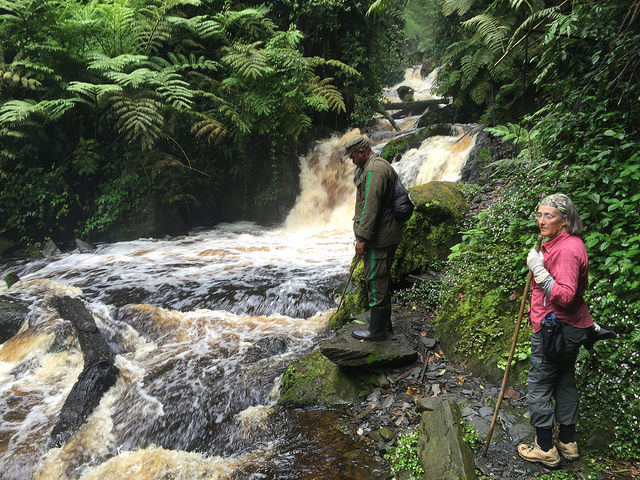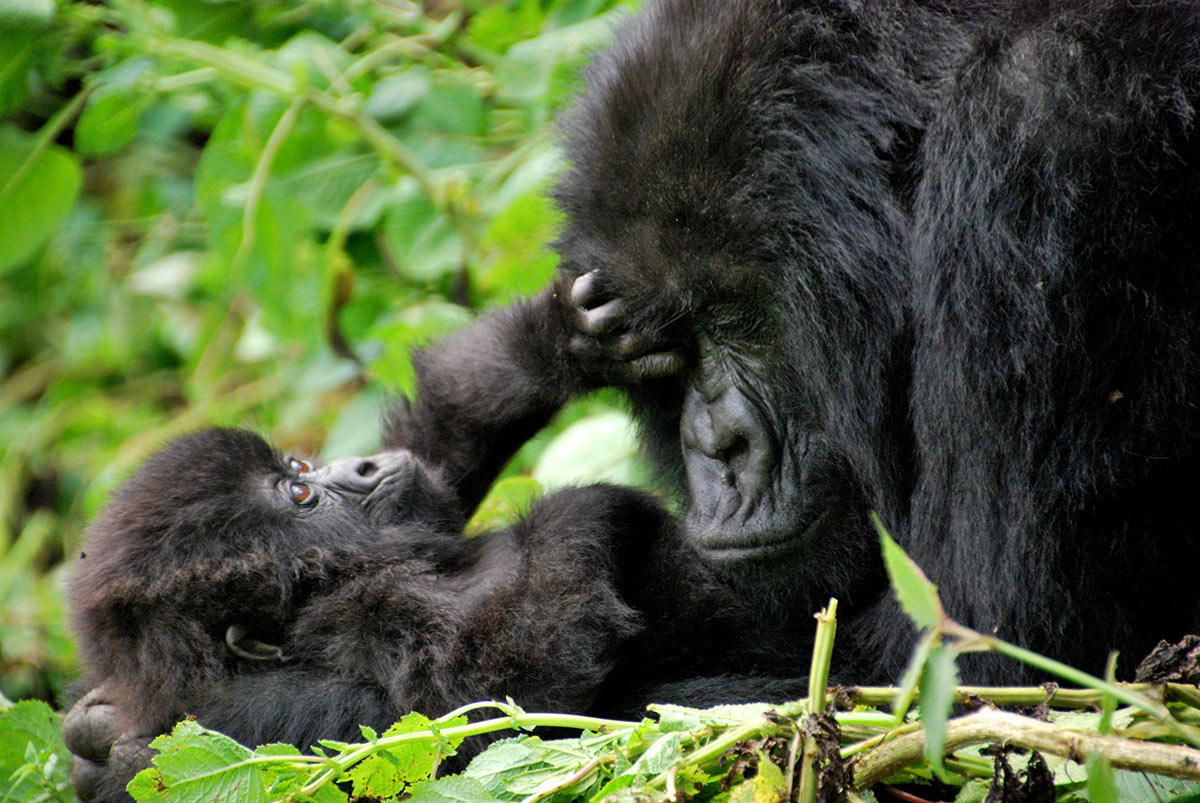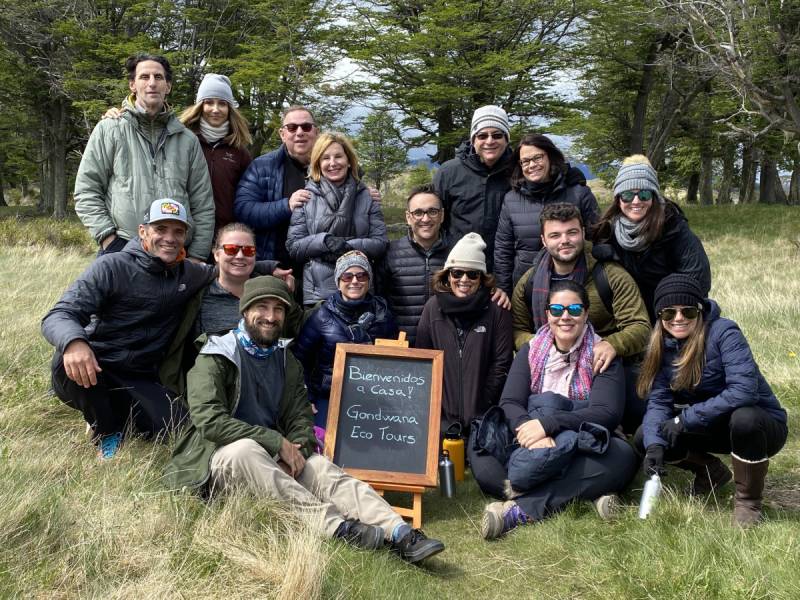The True Meaning of Ecotourism

Yes, the Gorillas can be this Close on a Gorilla Trek!
Delivering advice on food, wine and culture for the ethical traveler, Epicure & Culture is a resource for those wanting to make sustainable choices. We’re thrilled that they have shared Gondwana’s article, Gorilla Trekking In Rwanda Reveals The True Meaning Of Ecotourism with their audience. This piece studies the meaning of ecotourism, while connecting the dots between gorilla trekking in the Volcanoes Mountains and the resurgence of tourism in Rwanda. Learn more about the behaviors and social structures of the gorillas.
Exploring the intricate details of sustainable travel, Epicure & Culture not only educates its readers on the significance of ethical choices but also provides a platform for inspiring stories like Gondwana’s article on Gorilla Trekking in Rwanda. By shedding light on the interplay between ecotourism and the local community, this piece offers a deeper understanding of the positive impact that conscientious travel can have on both wildlife and people. As readers delve into the behaviors and social structures of the gorillas, they are encouraged to reflect on their own roles in preserving our planet’s natural wonders and cultural heritage. Through such thought-provoking narratives, Epicure & Culture continues to promote a holistic approach to travel that enriches both the individual and the destinations they visit.
Goals of Global Ethics & Ecotourism
To make things even sweeter, this article was featured on the front page of the Epicure & Culture website, and in their “Global Ethics” section. A broad topic, global ethics means considering how choices impact the earth on a global level, not just a personal way.
However, the word “ecotourism” brings along some contradictions due to its loose definition. Any company can market themselves as having an ecotourism focus, even if the result (behind the scenes) compromises the environment. Some natural experiences touted as ecotourism have little supervision or regulation, effectively the opposite of what we consider ecotourism. Mike Long, of Gondwana Ecotours, argues, “It’s important we also consider our impact. If these close-contact experiences are not moderated, the [wellbeing of the] wildlife, human visitors and the environment can be compromised.”
Five Key Goals of Ecotourism:
- Conservation: Ecotourism aims to promote the conservation of natural environments, including biodiversity, ecosystems, and endangered species, by minimizing negative impacts and supporting conservation efforts.
- Education: One of the primary goals of ecotourism is to educate travelers about the importance of environmental conservation, sustainable practices, and local cultures. Through guided tours, interpretive centers, and interactive experiences, ecotourism fosters greater awareness and appreciation of natural and cultural heritage.
- Community Empowerment: Ecotourism seeks to empower local communities by involving them in decision-making processes, providing economic opportunities, and promoting cultural exchange. By engaging communities in ecotourism activities, it helps to alleviate poverty, foster socio-economic development, and enhance local livelihoods.
- Sustainable Development: Ecotourism strives to promote sustainable development by ensuring that tourism activities are environmentally, socially, and economically sustainable. This includes minimizing carbon footprints, conserving resources, supporting local businesses, and respecting indigenous rights and traditions.
- Responsible Travel: Ecotourism encourages responsible travel practices among tourists, such as reducing waste, conserving water and energy, respecting wildlife and natural habitats, and supporting local conservation initiatives. By promoting responsible behavior, ecotourism aims to minimize negative impacts on the environment and maximize positive contributions to conservation and communities.
Merging Animal Tourism and Ecotourism
In the world of animal tourism, some unregulated practices have tarnished the reputation of this industry. Exposés on Sea World, circuses, zoos, and experiences like riding elephants reveal a dark side of how animals are treated in captivity.
As a counterpoint, gorilla trekking in Rwanda’s Volcanoes National Park has been an example of how animal ecotourism can positively impact the community and the environment. Read more on gorilla trekking in Rwanda vs. Uganda. While most wild gorillas roam free in the jungle, several mountain gorilla families are habituated to humans, so travellers can see them in their natural habitat. The government regulated project has protected the ecosystem of Volcanoes, stabilized the gorilla population, and created jobs for locals and even the poachers who once hunted the gorillas. Ideally, all forms of animal ecotourism should be able to attain these goals, while promoting the region as a tourism destination.
Long-Term Community Benefits of Ecotourism in Rwanda

A Guide in Volcanoes National Park
After the horrific Rwandan Genocide of 1994, the country was so devastated that few believed it could recover. A poor economy, aftershocks of war and political instability threatened to ruin Rwanda’s tourism economy permanently. However, with the surge in tourism surrounding mountain gorillas (partly due to recent documentaries like Virunga), and a booming coffee industry, jobs are being created and the country is rebounding. These opportunities create a clear link to how ecotourism can work on a globally ethical scale. To sum it up, Long writes, “Not only is the desired goal of saving this endangered species being fulfilled, but it’s benefitting Rwanda at large.”
With the positive momentum gained from the growth in tourism and coffee industry, Rwanda has demonstrated resilience and determination in overcoming the shadows of its tumultuous past. The nation’s commitment to sustainable practices and ecotourism not only safeguards its natural resources but also offers hope for a brighter future. As Rwanda continues to harness the potential of its unique attractions and prioritize environmentally responsible practices, it is paving the way for a model of ethical and sustainable development that can inspire other nations facing similar challenges. The success story of Rwanda serves as a beacon of hope, showcasing the transformative power of conservation efforts and ecotourism on both a local and global scale.
Explore Rwanda With Gondwana

Gondwana’s 10 day tour of Rwanda includes a permit to visit the endangered mountain gorillas, responsibly see other exotic animals, spend time on Lake Kivu, and visit a coffee plantation. In the city, explore the capital Kigali, and visit a non-profit that helps women learn life skills. Learn more about our trip inclusions on the Gorilla Trekking Tour!



